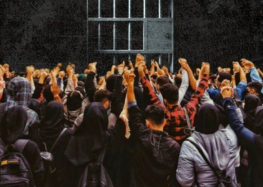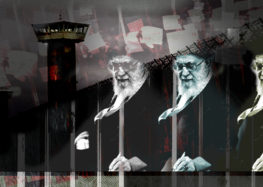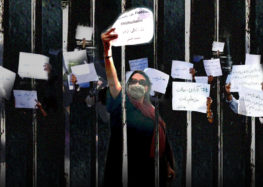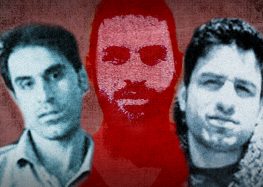Iranian Political Prisoner Sets Himself on Fire to Be Heard
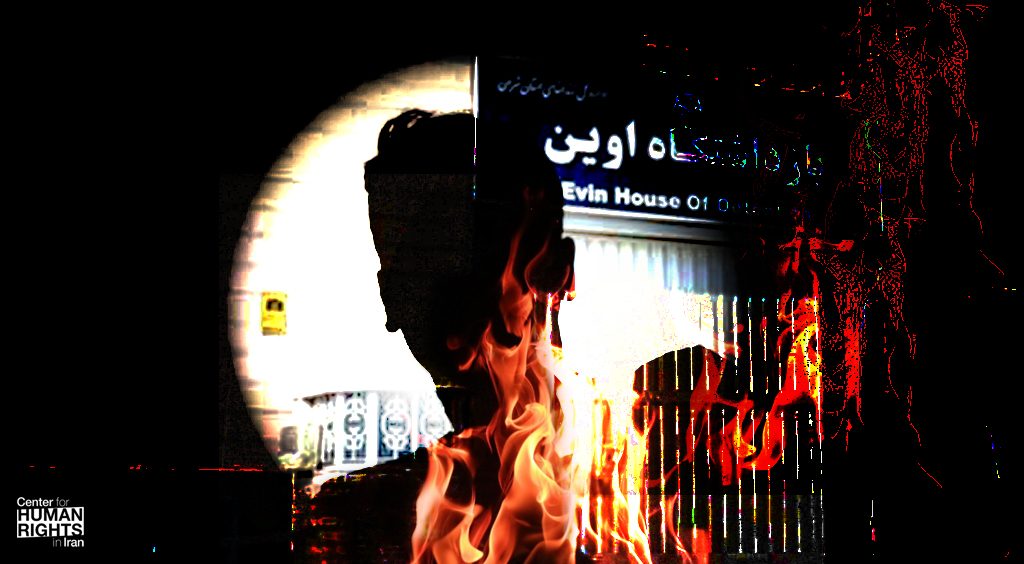 Mehdi Darini, a political prisoner in Tehran’s Evin Prison, set himself on fire on October 27, 2021, after his lawful requests for parole were repeatedly rejected, independent journalist Keyvan Samimi reported.
Mehdi Darini, a political prisoner in Tehran’s Evin Prison, set himself on fire on October 27, 2021, after his lawful requests for parole were repeatedly rejected, independent journalist Keyvan Samimi reported.
The event stirred public memory of a young woman, Sahar Khodayari, who set herself on fire in Tehran in September 2019 because she thought she would have to serve jail time for trying to watch a soccer match.
Arrested in June 2019, Darini has served more than a third of his five-year prison sentence on the charges of “assembly and collusion against national security,” “insulting the sacred” and “propaganda against the state”—making him eligible for parole.
“Today, after setting himself on fire, guards and prisoners at the scene tried to extinguish the fire and took him to the prison clinic,” Samimi said in his post on the Telegram messaging app. “Fortunately the condition of this determined young man has been reported as satisfactory.”
Darini’s drastic action was a response to the judiciary’s refusal to free him even after he was eligible for release—a common experience for political prisoners in Iran.
Previously, political prisoner Vahid Afkari attempted suicide on at least two occasions in Shiraz’s Adelabad Prison to protest being tortured and the prison’s inhuman living conditions, as well as being held in solitary confinement for months with no means of legal recourse through the courts.
This is despite the existence of laws that could have eased Afkari’s suffering.
Based on Article 58 of Iran’s Islamic Penal Code, “the deciding court can issue the order of conditional release (parole) for convicts sentenced to more than ten years’ imprisonment after half of the sentence is served, and in other cases after one-third of the sentence is served.”
Article 502 of the Code of Criminal Procedure also allows for the suspension of a prisoner’s sentence if incarceration could worsen her or his physical or mental illness.
However, the authorities have repeatedly ignored laws that could protect political prisoners so that they can deny or delay their freedom and have often withheld medical care to the seriously ill.
Prisoners accordingly resort to life-threatening protests to get their voices heard.
“When Mehdi Darini recently met with his case interrogator, he said he was going to start a hunger strike. The official replied, ‘So much the better; the Islamic Republic will have one less to feed,’” Samimi added in his post on Telegram.
On the day Darini attempted self-immolation, the head of the State Prisons Organization, Mohammad Mehdi Hajmohammadi, had praised his personnel for their management of the prisons and accused “enemy media” of “tainting their services.”
His comments came after international coverage of hacked images from Evin Prison that provided a glimpse into the systematic violence against and mistreatment of prisoners there.
Over the years, many political activists have also published revealing audio messages from political prisoners held at different prison facilities about their abusive and discriminatory treatment.
Two days after the Evin leaks, Hajmohammadi claimed to have accepted “responsibility” and asked for “forgiveness” from God, adding that he would make an “effort” to prevent further mistreatment. That effort is yet to be seen.
Read this article in Persian

